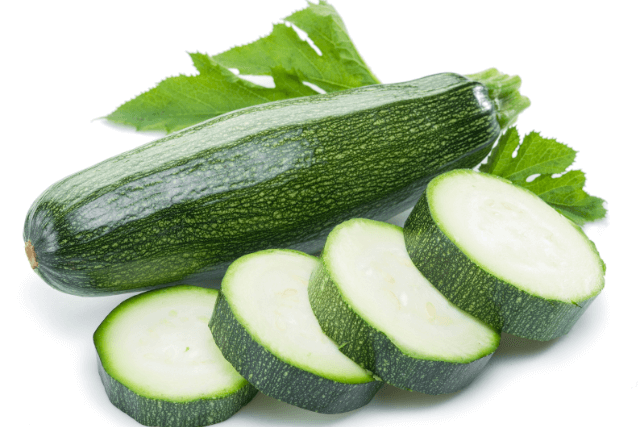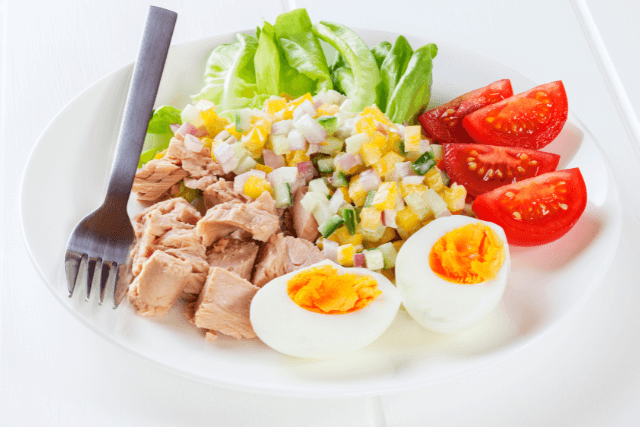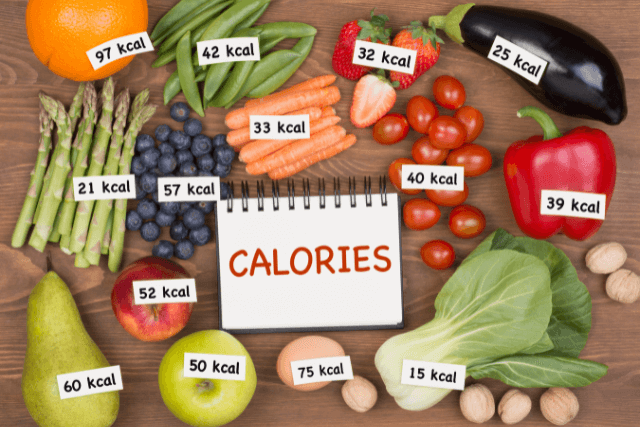Weight loss is often a challenging journey, but one of the most effective ways to shed those extra pounds and live a healthier life is by choosing the right foods. If you’re looking to lose weight without compromising on nutrition or taste, incorporating low-calorie foods into your daily meals can make all the difference. These foods can help you feel full longer, maintain energy levels, and achieve your weight loss goals more efficiently.
In this blog, we will explore some of the best low-calorie foods for weight loss and healthy living. We’ll also discuss how these foods can contribute to a balanced diet and offer some tips on how to include them in your meals. By the end of this article, you’ll have a better understanding of how to incorporate low-calorie foods into your routine and take a step toward a healthier lifestyle.
What Are Low Calorie Foods?
Low-calorie foods are foods that are naturally low in calories but high in nutrients. These foods are typically rich in vitamins, minerals, fiber, and water while being low in fat and sugar. They are ideal for individuals looking to lose weight or maintain a healthy weight because they allow you to eat satisfying portions without consuming excess calories.
Incorporating low-calorie foods into your diet can help create a calorie deficit, which is essential for weight loss. The key is to focus on nutrient-dense foods that provide essential nutrients without the added calories. These foods also help you manage your hunger, so you’re less likely to overeat.
Benefits of Low Calorie Foods for Weight Loss
Incorporating low-calorie foods into your diet can benefit your weight loss journey in several ways:
- Weight Control: Low-calorie foods help you maintain a calorie deficit, which is essential for weight loss. By eating foods that are low in calories but high in nutrients, you can eat larger portions and feel fuller while still losing weight.
- Rich in Nutrients: Low-calorie foods are often packed with vitamins, minerals, and antioxidants, which are crucial for overall health. These nutrients help keep your body functioning at its best, even while you’re losing weight.
- Helps Control Hunger: Many low-calorie foods are high in fiber and water content, which helps fill you up without adding many calories. This can prevent overeating and keep your hunger in check.
- Supports Healthy Metabolism: Eating a variety of nutrient-rich, low-calorie foods can help maintain a healthy metabolism, making it easier to burn calories and lose weight.
- Improves Overall Health: In addition to promoting weight loss, low-calorie foods can lower the risk of chronic diseases like heart disease, diabetes, and certain cancers. By eating a well-balanced diet rich in these foods, you’re not just losing weight—you’re improving your overall health.
Best Low Calorie Foods for Weight Loss
When trying to lose weight, it’s essential to focus on foods that are both nutritious and filling. Here are some of the best low-calorie foods to incorporate into your diet for effective weight loss and healthy living:
1. Leafy Greens
Leafy greens like spinach, kale, lettuce, and swiss chard are some of the best low-calorie foods you can eat. These vegetables are not only low in calories but also rich in essential nutrients such as vitamins A, C, and K, folate, and fiber. They are also high in water content, which helps you stay hydrated while feeling full.
How to include them in your diet: Add leafy greens to salads, smoothies, sandwiches, or stir-fries. They’re versatile and can be easily incorporated into most meals.
2. Cruciferous Vegetables
Cruciferous vegetables such as broccoli, cauliflower, Brussels sprouts, and cabbage are all low in calories but high in fiber and antioxidants. These vegetables help support your digestion and may reduce inflammation in the body, contributing to overall health.
How to include them in your diet: You can steam, roast, or stir-fry cruciferous vegetables. They also make a great addition to soups, stews, and salads.
3. Cucumbers
Cucumbers are extremely low in calories but have a high water content, making them a hydrating and refreshing snack. They are also rich in vitamins and antioxidants that promote skin health and reduce bloating.
How to include them in your diet: Slice cucumbers for a crunchy snack, add them to salads, or use them as a garnish for your meals. You can also enjoy cucumber-infused water for added hydration.

4. Zucchini
Zucchini is another low-calorie vegetable that’s packed with nutrients. It contains a good amount of fiber, vitamin C, and potassium, and it can be used in various low-calorie recipes.
How to include them in your diet: Zucchini can be grilled, roasted, sautéed, or even spiralized into “zoodles” (zucchini noodles) for a low-calorie pasta alternative.
5. Berries
Berries, such as strawberries, blueberries, raspberries, and blackberries, are low in calories and packed with antioxidants. They are also high in fiber, which helps with digestion and promotes feelings of fullness.
How to include them in your diet: Berries can be eaten fresh, added to smoothies, or sprinkled on top of oatmeal or yogurt. They also make a delicious, healthy dessert option.
6. Tomatoes
Tomatoes are rich in vitamin C and antioxidants, making them a great addition to any weight loss diet. They’re also low in calories and high in water, which helps with hydration and satiety.
How to include them in your diet: Add fresh tomatoes to salads, sandwiches, or wraps. You can also use them to make homemade salsas or tomato-based sauces for pasta dishes.
7. Apples
Apples are not only low in calories but also high in fiber, which makes them a satisfying snack that keeps you full for longer. They are also packed with essential nutrients like vitamin C and potassium.
How to include them in your diet: Enjoy apples as a snack, slice them into salads, or pair them with a small amount of nut butter for added protein and healthy fats.
8. Greek Yogurt
Greek yogurt is an excellent source of protein and calcium, and it contains fewer calories than regular yogurt. It also promotes a healthy gut with its probiotics, which can help with digestion.
How to include it in your diet: Enjoy Greek yogurt as a snack, add it to smoothies, or use it as a substitute for sour cream in recipes. Be sure to choose plain, low-fat Greek yogurt to avoid excess sugars.
9. Carrots
Carrots are low in calories but high in fiber and beta-carotene, an antioxidant that supports eye health. They are a crunchy, satisfying snack that can be eaten raw or cooked.
How to include them in your diet: Snack on raw carrots, add them to salads, or use them in soups and stews. You can also roast them with a little olive oil for a delicious side dish.
10. Lean Protein Sources
Incorporating lean protein sources into your diet, such as skinless chicken, turkey, tofu, and fish, is an effective way to stay full without consuming excess calories. Protein is essential for muscle maintenance and overall health.
How to include them in your diet: Add lean protein to salads, wraps, or stir-fries, or enjoy it as the main course with vegetables.

How to Incorporate Low Calorie Foods into Your Diet
Now that you know which low-calorie foods are the best for weight loss and healthy living, the next step is incorporating them into your meals. Here are a few tips to help you get started:
- Start with Small Changes: Begin by swapping high-calorie foods with low-calorie alternatives. For example, replace regular pasta with zucchini noodles or white rice with cauliflower rice. Gradually make small adjustments until these changes become a regular part of your lifestyle.
- Meal Prep: Plan and prepare your meals ahead of time. This will help you make healthier food choices and prevent you from reaching for high-calorie, processed snacks when you’re hungry.
- Focus on Portion Control: Even when eating low-calorie foods, it’s important to practice portion control. While these foods are healthy and low in calories, eating in moderation will still help you stay on track with your weight loss goals.
- Combine Foods for Fullness: Combine low-calorie foods with healthy fats and lean protein to create balanced meals that will keep you full longer. For example, pair leafy greens with grilled chicken and avocado for a satisfying and nutrient-dense meal.
- Stay Hydrated: Drinking plenty of water throughout the day is essential for weight loss. Water not only keeps you hydrated but also helps fill you up, making it easier to avoid overeating.
Conclusion: Why Low-Calorie Foods Matter for Weight Loss
Incorporating low-calorie foods into your diet is an effective way to support weight loss and healthy living. By focusing on nutrient-dense foods that are low in calories but high in vitamins, minerals, and fiber, you can create a sustainable diet plan that promotes long-term health and weight management. From leafy greens and cruciferous vegetables to lean proteins and healthy snacks like apples and Greek yogurt, the possibilities for delicious and satisfying meals are endless.
Remember, the key to successful weight loss and healthy living is consistency. Start by making small changes, and over time, you’ll develop healthy habits that will help you achieve your goals and feel your best. Always consult with a healthcare professional or nutritionist to create a personalized plan that works best for your needs.










